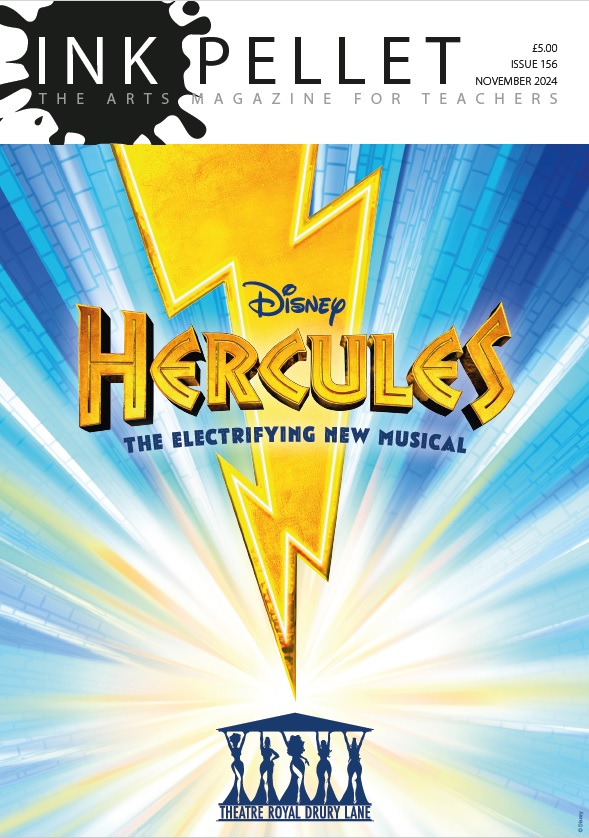Susan Elkin participated in a panel discussion on the current state of education, focussing on the detriment to learning caused by the paucity of arts subjects in the curriculum.
1968 was the year I started teaching. My e-book memoir Please Miss We’re Boys, details it amusingly – I hope. By some mysterious coincidental synergy, I was asked to take part in the panel debate, entitled The State of Education at Chichester Festival Theatre last month. The event was predicated on CFT’s current production of Alan Bennett’s Forty Years On which is set in a boys’ school – guess when? – 1968, fifty years after the end of World War One. It was somehow appropriate that I did my original (indifferent) teacher training in Chichester at Bishop Otter College too.
Novelist and playwright, Kate Mosse chaired the panel which comprised actor, Imogen Stubbs; former Director of Learning for West Sussex, David Sword; Principal of Chichester College, Sheila Legrave… and me. We started by each speaking for five minutes about our current concerns and reflecting on the changes since birth of Forty Years On which explores the changes which were about to happen at the time, with a retiring headmaster who looks back and an incoming younger man with a very different vision.
I spoke about words and how they underpin everything we do. That’s why students need huge exposure to literature of all sorts so that they become adept with words, without which you cannot think properly or develop ideas. Today exposure to words used well is minimal in most schools. The curriculum allows far too little wide range reading, literature and arts.
“I’ve done Of Mice and Men five times!”
Sheila Legrave made the case for the status and importance of education in technical subjects and reflected on how attitudes have changed repeatedly in the last half century. Schooling is, however, still predominantly focused on university entrance, which at present works for only around a third of students – the ones who go on to higher education. Two thirds of the students are being sold short.
David Sword explained how assessment of students and schools works. Almost all the statistical emphasis is on the Ebacc subjects – English, maths, science, history or geography and a language so that creative subjects such as art, music and drama automatically become low status. He argued that it is time to start again because the current, backward looking curriculum does not work for the 21st century. Project based learning rather than a compartmentalised subject-based timetable might be a way forward.
The real passion came from Imogen Stubbs, who said she was there primarily as a parent – of two children and three step children all now in their twenties. Imogen, who has written extensively about education and made radio programmes on the subject, believes fervently that testing is killing real learning. The curriculum is dominated by banal revision, frequent exams and a very narrow range of things to study. “I’ve done Of Mice and Men five times!” she joked bitterly. Her plea was for more fun in education and a great deal more learning for the love of it.
What this all came down to was four people – five including Kate, an incisive, witty, quick thinking chairperson – in total agreement that the woefully narrow curriculum we are currently saddled with is stultifying school education and holding back learning. And the interesting thing was that we arrived at this consensus from five very different perspectives.
Our audience of about fifty people was then invited to chip in with comments and questions. The atmosphere was rueful because almost everyone there (and most were not young) seemed to agree that education has lost its way. Organisations such as Chichester Festival Theatre, which runs some of finest and most far reaching youth theatre and participation provision in the country, is enabling hundreds of young people to access the arts education which they are not getting at school. But there are still many young people who slip through the net.
Surely it’s time to abandon the National Curriculum and what Warwick Mansell in a rather wonderful book (Education by Numbers, Politico Publishing, 2007) called “the tyranny of testing”? I used to think that a specified baseline syllabus would mean that those who had always lost out would get their entitlement. Instead it has relentlessly lowered the bar for every single student. Everyone now gets his or her legal dose and no more.
Thank you, Dale Rooks, Director of LEAP (Learning, Education and participation) at Chichester Festival Theatre for allowing a group of very concerned people to debate these vital issues. If only the cabinet and shadow cabinet had all been present to hear us.



